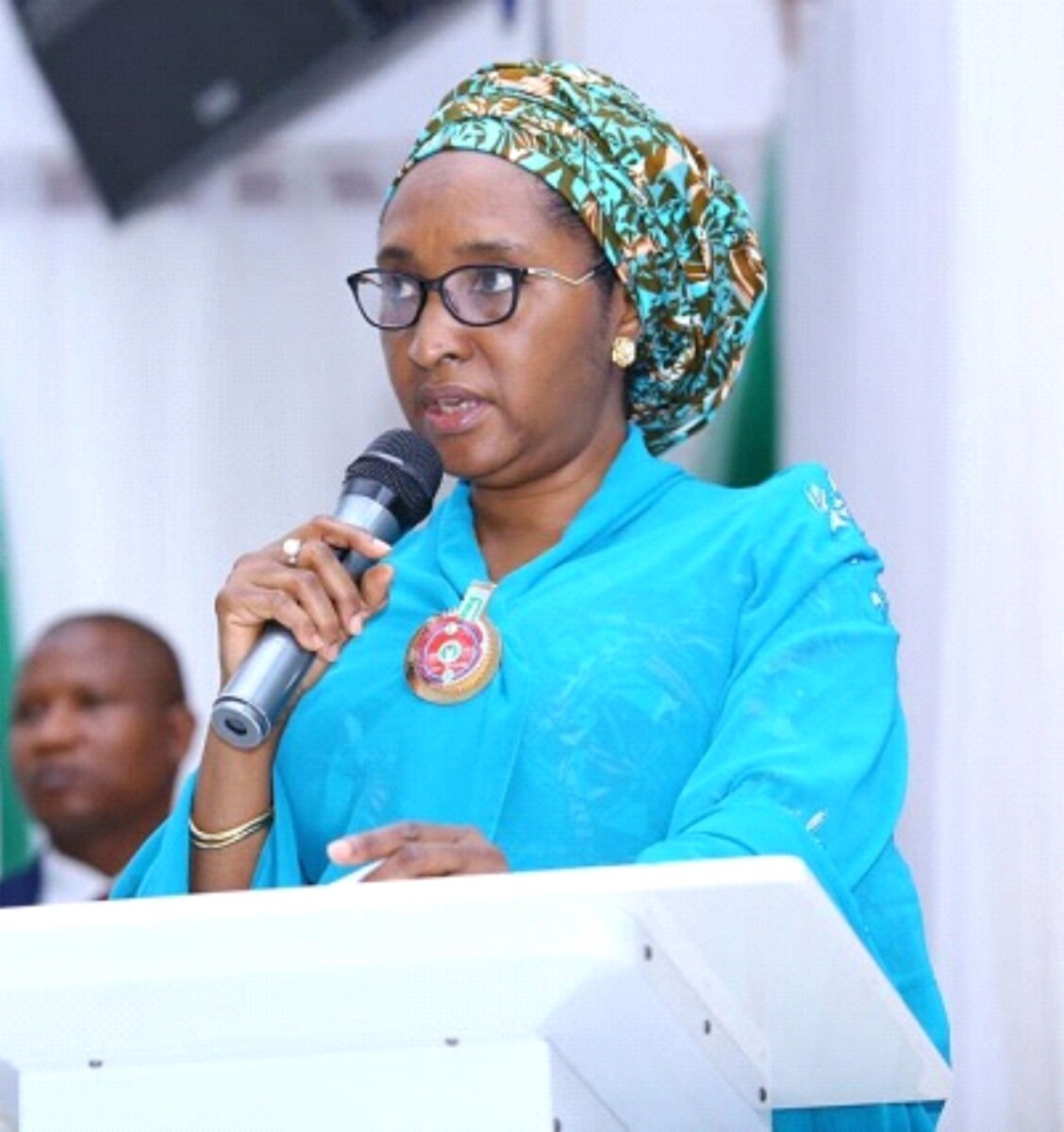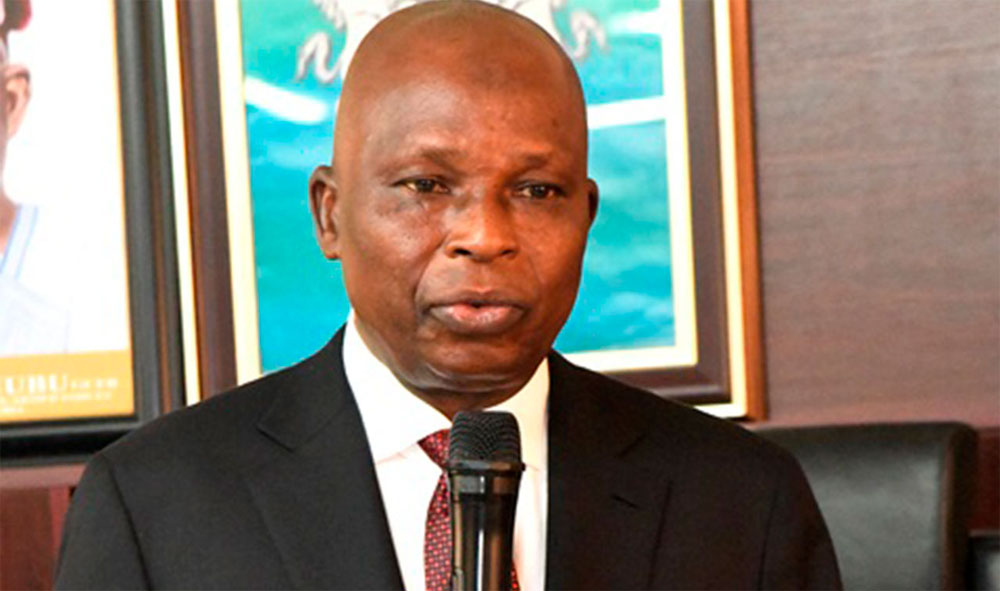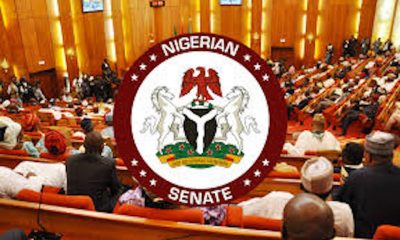“Now that the National Assembly is making a law to create additional states for the people of Southeast, it is reasonable, fair and timely to create additional local governments for Lagos State.”
News
TSA: FG saves N45bn monthly, says finance minister

The Minister of Finance, Budget and National Planning, Mrs Zainab Ahmed, says the Federal Government is currently saving an average of N45bn monthly in interest payments following the implementation of the TSA (Treasury Single Account).
Ahmed, who spoke during the signing of a Memorandum of Understanding (MOU) on TSA between Nigeria and the Republic of The Gambia, said among other verifiable benefits, Nigeria could easily determine its aggregate cash balance, critical for managing public finances at a time of acute fiscal constraints.
“On the monetary policy side, we have better control over money supply and, therefore, able to rein in inflation and undue pressure on the naira. Our foreign reserves position has also recorded appreciable improvement through the consolidation of the federal government foreign currency earnings under the TSA,” she said.
Ahmed recalled the last visit by officials of The Gambia in May 2019 for a week-long study tour of the TSA implementation.
The minister said following the successful conclusion of the tour, The Gambia requested technical cooperation with Nigeria to support its own transition to the TSA.
She said in order to achieve that aim, representatives of both countries worked on an MoU detailing the terms and scope of the cooperation.
Ahmed said, “In a nutshell, the cooperation seeks to avail the Ministry of Finance and Economic Affairs of The Gambia of the vast knowledge, experience and technical expertise that Nigeria has gained in the past 15 years of implementing TSA in particular and other public financial management (PFM) reforms in general.
“By so doing, The Gambia is properly guided as it implements its own TSA. The cooperation will enable The Gambia to leverage the experience of Nigeria to build on our strengths while avoiding our mistakes.
“We are happy to support The Gambia in their bid to implement TSA and other PFM reforms. We are also open to supporting other African countries which may want to build on our experience and significant progress in TSA implementation.
“It is our belief that African countries are better off learning from each other and supporting each other because of our shared culture and history.”
The minister urged The Gambia to muster the necessary political will before forging ahead with adopting the TSA.
She warned that it was better to secure the buy-in of topmost political actors in the country.
She stressed the importance of the synergy between the fiscal and monetary authorities.
She noted that the cooperation of other stakeholders such as the parliament; ministries, departments and agencies of government, banks and service providers was also important.
Ahmed urged those to drive the reforms to secure the support of the general public.
“As is the case in Nigeria, when you have their support, they will take it upon themselves to be against forces of resistance and any attempt at derailing the reforms,” Ahmed said.
In her remarks, the leader of the Gambian delegation to the MoU signing ceremony, the country’s Permanent Secretary, Ministry of Finance and Economy, Ms. Ada Gaye, explained that cooperation has helped them to understand the workings of the TSA.
“The Gambia wants to efficiently manage its funds; the fragmentation of accounting systems in The Gambia is huge. It is, therefore, noteworthy for The Gambia to adopt TSA,” she said.
She added that the government of The Gambia will create the needed sensitisation to help the people understand the process.
“Nigeria is the big brother while The Gambia is the small brother. We are happy to cement this brotherly love,” she said.
The Gambian High Commissioner to Nigeria, Mr Amadou Sheikh Oman Taal, also described Nigeria as a big example within the Economic Community of West African States (ECOWAS) region.
“We are trying to make reforms in our financial management. Therefore, this collaboration with Nigeria is very important to us. So, The Gambia Central Bank will get closer to the Central Bank of Nigeria (CBN) so as to learn and get the necessary experience,” he stated.
Governor of CBN, Godwin Emefiele, said the role of the apex bank was critical to the success of the TSA.
Represented by the CBN Deputy Governor, Operations, Adebisi Shonubi, Emefiele said Nigeria was currently realising additional benefits, which were never imagined prior to the commencement of the TSA.
According to him, it is important that the Central Bank of Gambia realises that its primary mandate of price stability will change as it assumes the back stock and corresponding bank for the country as a result of the TSA.
Emefiele said, “Nigeria remains a brother in the house and we are always willing to share our experiences, our gains and sometimes our pains. I know we will be a worthy ambassador of what the TSA has done in Nigeria, The Gambia and other countries in Africa.”
News
National Assembly urged to create more councils for Lagos

National Assembly urged to create more councils for Lagos
National Assembly has been urged to create more local governments for Lagos State, to meet its current population, social, economic and environmental challenges.
The Red Chamber is also advised to enact laws granting the state a special status for being the country’s commercial city and economic melting pot.
Renowned socio-political activist and critic, Chief Adesunbo Onitiri, made the demands in a statement in Lagos.
The activist recalled that in 1976 when the military government created states and local governments, Lagos and Kano states had 20 councils each.
“Later, Kano State councils increased to 44, while Lagos councils remained at 20. When the Abacha government carved out Jigawa State out of Kano State, Jigawa got 27 local governments, while Kano was still having 44 councils.
READ ALSO:
- Kano bakers summoned over bread price hike
- FG warns LG chairs misusing FAAC funds will face jail term
- PSG not giving up on Osimhen, seek further slash in price
“It is an injustice for Lagos State to remain with only 20 local governments till today, despite its gigantic social, security and economic problems,” Onitiri said.
He recalled that when the then Governor of Lagos State, now Nigeria’s President, Asiwaju Bola Ahmed Tinubu, created 37 additional councils in 1999, Chief Olusegun Obasanjo, then President, seized Lagos State federal allocations for two years.
He said Lagos State through the then Attorney-General, Prof. Yemi Osinbajo, sued the Federal Government, and the state government won the case against Federal Government at the Supreme Court.
He regretted that till now, National Assembly has not done the needful to enact a law to accommodate the 37 local governments created by Lagos State Government.
News
FG warns LG chairs misusing FAAC funds will face jail term

FG warns LG chairs misusing FAAC funds will face jail term
The Federal Government has threatened jail terms for Local Government Area chairmen who tamper with Federation Accounts Allocation Committee funds.
Lateef Fagbemi (SAN), the Attorney General of the Federation and Minister of Justice, made the announcement yesterday at the Human Rights Writers Association of Nigeria’s 17th annual lecture event in Abuja.
He stated that none of the chairmen have immunity and will be imprisoned if they tamper with funds designated for the development of their areas. Fagbemi stated, “We have a situation on our hands; I know that it is still there; the conduct of elections must be done by the states.”
“But the distinction is this: don’t forget, the governors have immunity, the local government council chairmen or councillors, they have no immunity, so they have to choose between dealing with the funds of the local government as they like and risking going to jail. The choice is theirs (LG chairmen).
“If they want to tamper with these funds and end up in jail, it is their choice. If they want to write their names in letters of gold, activities like construction or road upgrades must be returned to the local government. They don’t all have to come to Abuja.
READ ALSO:
- PSG not giving up on Osimhen, seek further slash in price
- Saudi duo to bid for Osimhen amid PSG stalled deal
- FG rolls out fresh plans to revive local manufacturing, create 4.4 million jobs
“If they stay at the local government, we will be able to reduce the level of insecurity that we have in Nigeria today. What obtains offshore is that the security agents are able to perform optimally because of information that comes to them from members of the public and usually it is from the grassroots.”
The minister said the federal government opted to use the supreme court to achieve local government autonomy due to the challenges it will face at state assemblies, stressing that any speaker who would have supported the cause will not survive the tenure or lose his reelection.
The Minister stated that for over two decades, local government administration in the country has been in comatose with state governments not remitting funds meant for the local governments.
Fagbemi, who urged security agents in the country to stop keeping suspects in detention beyond the period allowed by the constitution, added that detention without any court order will no longer be tolerated as appropriate sanctions will be applied to those found guilty of contravening the law of the land.
On his part, the National coordinator of HURIWA, Comrade Emmanuel Onwubiko, urged the federal government to cut down on the cost of governance.
He blamed corruption for the insecurity and high unemployment rate in the country, which is responsible for impending protests in the country.
FG warns LG chairs misusing FAAC funds will face jail term
News
FG rolls out fresh plans to revive local manufacturing, create 4.4 million jobs

FG rolls out fresh plans to revive local manufacturing, create 4.4 million jobs
The Federal Government has unveiled plans to create 4.4 million jobs by implementing Nigeria’s National Strategy for Competitiveness in Raw Material and Product Development.
This announcement was made by the Minister of Innovation, Science, and Technology, Chief Uche Geoffrey Nnaji, during the National Consultative Committee on Global Competitiveness in Raw Materials and Product Development conference in Abuja on Thursday.
According to a statement on the official X (formerly Twitter) account of the Federal Ministry of Information and National Orientation, the strategy will generate employment and enhance local content in manufacturing.
This boost in local content will ensure the global acceptance of Nigerian raw materials, products, and services, thereby improving the country’s global competitiveness, the statement also noted.
“Minister of Innovation, Science and Technology, Chief Uche Geoffrey Nnaji, has said that the Federal Government will create 4.4 million jobs through the implementation of the National strategy for competitiveness in Raw Material and Products Development in Nigeria.
READ ALSO:
- I was a peaceful protester, Tinubu admits
- Netanyahu, Biden hold talks over tense Gaza ceasefire
- Islamic scholars warn parents, schools against skipping Primary 6
“Nnaji stated that the implementation of the National strategy will not only enhance the creation of employment, our quest for economic diversification but will also, boost local content in manufacturing to 50% and 80% respectively, for global acceptance of made-in-Nigeria raw materials, products and services which will ensure global competitiveness in the country,” the statement read in part.
The Minister further stated that global competitiveness is essential for producing goods and services that meet international standards. Nnaji emphasized that Nigeria must leverage innovation, science, and technology to achieve this.
The statement further noted that the Permanent Secretary, Mrs. Esuabana Nko Asanye, represented by Mrs. Salamatu Mohammed, highlighted the Conference as a crucial forum for discussing the National Strategy on Global Competitiveness in Raw Materials and Products Development. She emphasized the theme’s relevance to the current national development priorities.
Prof. Nnanyelugo Martin Ike-Muonso, Director-General of RMRDC, welcomed guests, stressing that the successful implementation of the home-grown strategy, driven by innovation, science, and technology, will significantly reduce raw material imports. He noted that the technical workshop would address key issues, ranging from competitiveness and advocacy to the commercialization of R&D breakthroughs.
Dr. Henry Emejo from the Organized Private Sector urged stakeholders and Nigerians to collaborate for the country’s socio-economic development.
Additionally, Sir Henry Eteama, Project Manager of SITU, emphasized the importance of clearly defined stakeholder roles in policy, legal frameworks, and R&D outputs. He called for collective efforts and commitment to ensure the project’s success and achieve the nation’s goals.
FG rolls out fresh plans to revive local manufacturing, create 4.4 million jobs
-

 News3 days ago
News3 days agoBREAKING: Senate passes minimum wage bill within an hour
-

 News3 days ago
News3 days agoJUST IN: Reps call for suspension of NMDPRA CEO pending investigation
-

 News2 days ago
News2 days agoNLC can’t withdraw from protest it didn’t organise – Ajaero
-

 News3 days ago
News3 days agoBREAKING: Tinubu Sends ₦70,000 Minimum Wage Bill To National Assembly
-

 News2 days ago
News2 days agoNorthern group attacks Reps Minority Caucus for demanding Nnamdi Kanu release
-

 International4 hours ago
International4 hours agoNetanyahu, Biden hold talks over tense Gaza ceasefire
-

 News3 days ago
News3 days agoReps member from Kogi defects from ADC to APC
-

 Africa2 days ago
Africa2 days agoDozens arrested in Uganda anti-government protests














You must be logged in to post a comment Login